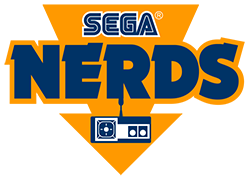
Review: Yuji Naka’s Power of Coin
When I heard the announcement that SEGA released Dragon Coins, I was shocked. Sega choose to develop a coin-pusher game, especially when they could have published Power of Coin by Yuji Naka’s Prope.
It makes no sense, and while I haven’t played Dragon Coins, it just seems redundant. However, I did play Power of Coin with my younger brother, and we wrote a review for it last year on Age-Media.
Power of Coin (PoC) is a video game simulation of the coin pusher style of medal games commonly found in arcades and casinos that was released on Aug. 24, 2011. Basically, the objective of these games is too push coins and other tantalizing prizes into our hands by dropping coins from our pockets through the slots into the coin guzzler. In our experience, we have only dropped coins from our pocket, and that never translated into getting any in our hands.
 PoC aimed to cash in on the success of the massively popular Coin Dozer by Game Circus. The objective of both games is to tap the screen on the target area to shoot coins. In adherence to the laws of physics, the coins fall exactly where they’re taped and then they are pushed forward by a consistently back and forward moving platform.
PoC aimed to cash in on the success of the massively popular Coin Dozer by Game Circus. The objective of both games is to tap the screen on the target area to shoot coins. In adherence to the laws of physics, the coins fall exactly where they’re taped and then they are pushed forward by a consistently back and forward moving platform.
Some strategy is required as the coins need to be pushed toward the pit and not the sides; coins that fall on the side don’t give you any points. The quintessential difference between the two games is that Coin Dozer is a simple simulation and offers little more than the aforementioned description. Power of Coin, on the other hand, is an arcade-style re-imagining, elevating the simple gambling simulator into a video game of biblical proportions.
PoC is an economical battle against the mythological Greek gods. Basically, each coin dropped into the pit funds an army to wage war against the gods. Every coin dropped into the pit launches an attack, and gold coins commission pawns whereas the rare blue and red coins dispatch knights and bishops. Additionally, you can collect “Power Coins,” which grant you powers of the elements such as Earth, Lightning, Wind and Water.
Power of Earth, for example, temporarily clogs the side bumpers with sand, whereas Power of Sea causes a flood to push all the coins into the pit.
Lastly, the prizes are substituted with pieces of armor and weapons that bend the rules of physics in our favor and allows us to collect more coins to fund our war.
The game features five gods to battle against including Hades, Medusa, Dragon, Apollo and Zeus. To enrich the experience, the game adds medieval background music and voice acting. It’s a very nice touch, but, like most mobile games, it gets repetitive after a while, and we preferred playing the game on mute.
Given our aforementioned disdain for all things related to gambling, we approached this game very skeptically, but our experience with it was very pleasant. Although one significant complaint is that PoC never technically ends; once you defeat all the gods, they just keep reviving, and we keep slaying them. I suppose that’s what makes them immortal. It would have been nice to have a better reason to return to the game, even if the game simply tracked your high score and you tried to best it.
All in all, Power of Coins is a great under-appreciated game for smart phones that we highly recommend.









